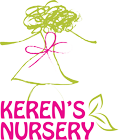Language development is an extremely important part of a child’s early development as it supports their cognitive and social skills. As a result, helping them later in life both socially and academically.
In this blog, we’ll explore why language is important for a child’s overall development and how this can be encouraged throughout a child’s early years at home.
What Is Language Development?
Firstly, what exactly is language? While we’re all likely aware of what it is, we may struggle to provide a set definition of what language actually is. In short, language is a system of communication. We use language through both written, spoken and even gestured manners. Language, furthermore, also refers to the many communication systems different countries and cultures use across the globe.
Language development, meanwhile, refers to the process in which a child makes sense of speech. They initially begin by listening to words, which later develop into fluency in written and spoken language.
Why Is It Important?
Language development in early childhood is fundamental. It helps to create a strong foundation for skills later in life – whether it be social or academic. For example, a child who develops language early will likely find it easier to communicate their emotions and thoughts with peers and adults, such as teachers.
There are many benefits to language development. For instance, it can help children with:
- Memory: Language skills are tightly linked to better short-term & long-term memory functions.
- Creativity: Children who develop language skills improve their creative skills, particularly through the visualisation of vocabulary and storytelling.
- Relationships: Learning language can help children to communicate their needs better, in turn, helping them be more empathetic when interacting with peers.
All in all, language and speech development has many advantages for a child’s social and cognitive advancements. Not only does it create a more independent and confident child, but also one that can communicate well with others.
Keep in mind, nevertheless, that all children’s stages of development vary, in particular with speech.
How to Encourage Language Development
Language development is a core part of a child’s early school curriculum. However, parents and carers can also encourage language and speech development outside of the nursery and school hours.
The first step to encouraging language skills is by talking. This begins as early as the womb; babies are proven to be familiar with the sound of their mother’s voice even before they are born. Following this, parents should continue to talk to their children wherever possible. Saying sounds, repeating words, making gestures as well as babbling with your baby are great ways to expose them to language!
Children 1-2 Years Old
Once a child becomes more conscious of their surroundings and begins to string more sentences together (typically around 1-2 years old), parents can encourage language development by interacting with them frequently. For instance, asking your child about their day, how they are feeling and what they are doing are some basic ways to encourage communication.
Tips for Adults
It is also crucial that adults use age-appropriate language and are patient when speaking with children. Doing so can ensure children feel more secure in their environment, in turn, helping them to feel more confident in expressing themselves. Repeating words or sentences, giving them time to think, providing them with the right word as well as using their native language are good ways to start their language development journey.
Storytelling
Another great way to develop a child’s language skills is through storytelling. Whether it be through reading a book, singing a song before bed or telling them a family story – storytelling also has many benefits to a child’s understanding of language. They can become more familiarised with words and their outer world through doing so.
Fun Activities for Children to Develop Language Learning
If you are still apprehensive as to how you can help your child’s language development, then you could begin with some simple and easy activities at home. Below, find some of Keren’s suggestions:
- Word games (e.g. Scrabble or other age-appropriate ones to encourage vocabulary development)
- Rhymes (rhyming and repetition have been proven to help children retain new words)
- Songs
- Playing music
- Jokes
- Riddles
Language learning, after all, is supposed to be fun! Parents at home should foster different ways, whether it be through reading a book before bedtime or playing music more frequently, to encourage language development in their child.
For more quick tips about child development and ways, parents can entertain children at home, read our other blogs.









